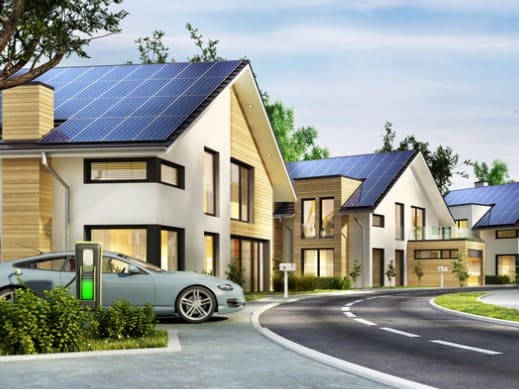Consumer Reports conducted a consumer survey earlier this year to better understand consumer perspectives and concerns around electric vehicles (EVs). Their report, Battery Electric Vehicles and Low Carbon Fuel Survey revealed who is most likely to purchase or lease an EV and the main reasons why people don’t, among other topics.
What makes someone more likely to purchase or lease an EV?
The survey found that males, consumers with a higher education level, those with a higher household income, Democrats, and urban dwellers were more likely to purchase an EV. Environmental beliefs are also important. Almost half of those who would definitely buy or lease an EV said reducing their impact on the environment is most important to them when selecting a vehicle, compared to 9% of Americans who would not consider buying or leasing an EV.
Familiarity with, exposure to, and experience are also critical factors. More than two-thirds of survey participants who would definitely buy or lease an electric-only vehicle are ‘very’ or ‘somewhat’ familiar with the fundamentals of owning an EV.
And while 44% of all Americans have seen EVs in their neighborhood, 71% of those who have been exposed to EVs say they would definitely buy or lease one if they were getting a vehicle today.
EV experience is important as well. Only 17% of those surveyed have been a passenger in an electric-only vehicle in the past 12 months compared to 39% of people who say they would definitely buy or lease an electric-only vehicle.
Why aren’t consumers buying EVs?
Consumer Reports’ research found that the top three barriers for purchasing or leasing an EV were around charging logistics, the number of miles the vehicle can go before it needs to be charged, and the costs involved with buying, owning, and maintaining an EV.
More specifically around costs, purchase price and maintenance and repair costs are the top obstacles, and the main logistical barrier was the lack of enough charging stations.
Why do consumers buy an EV?
While costs are substantial barriers to an EV purchase or lease, cost-related factors can also be a compelling reason to consider an EV. Some of of the reasons that consumers would purchase an EV include: it “costs less to charge than fueling a gas-powered vehicle,” , there are “lower overall costs over the lifetime of the vehicle compared to a gas-powered vehicle,”, and there are “lower maintenance costs than a gas-powered vehicle.”
Incentives are still a secret
Nearly half of consumers have not heard about any incentives available for EV owners and 15% of current EV owners have not heard of any of the incentives the survey asked about such as tax credits, discounts on charger installation, exemptions from vehicle emissions, access to carpool lanes when driving alone, and discounted charging rates.
But incentives may not boost purchases, especially given the high price of EVs and more limited used EV options. Americans with higher incomes are more likely than those with lower incomes to agree that incentives (with the exception of exemptions from vehicle emissions inspections) would encourage them to buy an EV.
Consumer Reports’ research revealed a big gap in EV knowledge alongside many misconceptions. Fewer than one in 10 Americans say they are ‘very familiar ‘with the fundamentals of owning a battery-electric vehicle. Added to this, consumers don’t know about the resources that can make it easier to purchase or own an EV. Nearly half of Americans have not heard about the incentives available for EV owners and most current EV owners don’t.
While there are many factors beyond an energy provider’s control such as the cost of EVs, they can help educate consumers about the benefits of EVs, help them find an EV for their needs and lifestyle, and help them take advantage of incentives they are eligible for–removing several obstacles in the EV journey and getting more EVs on the road. More EVs will lead to more EV sales as more consumers have familiarity with, exposure to, and experience with EVs.





